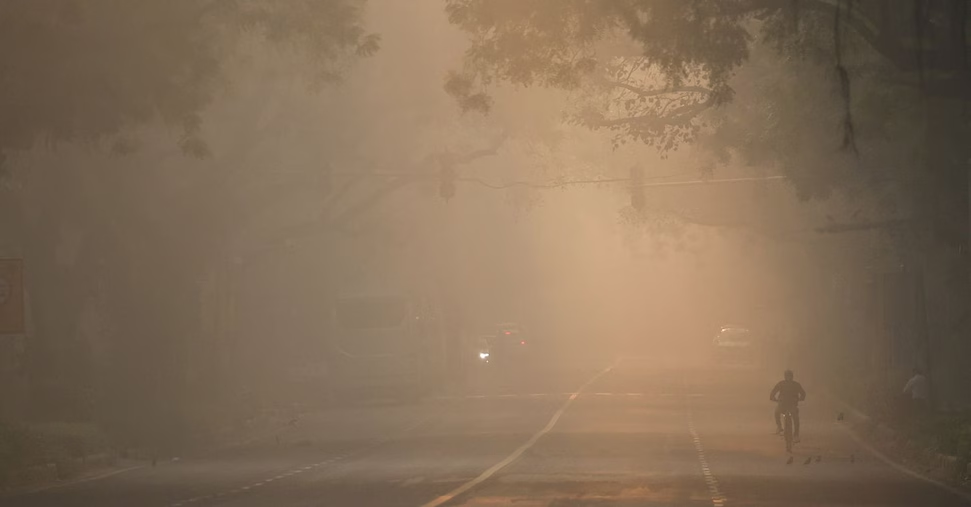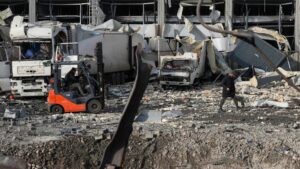
From our correspondent
NEW DELHI – The Delhi government on Monday evening ordered a halving of office attendance, both public and private, in the hope that by reducing travel between home and work, pollution levels in the capital – which have been very high for weeks – will come down. The decision to encourage smart working, with the exception of essential services such as hospitals and transport, was taken on Monday after components of the Air Quality Index (AQI) were linked to vehicle traffic reached 21 percent.
According to India’s Central Pollution Control Board (CPCB) parameters, the average pollution index on Monday was 382 points, down slightly from 391 on Sunday, but high enough to mark the eleventh consecutive day of “very poor” air quality, after three days from November 11 to 13 where the air quality was “severe/severe”. From 0 to 50 the quality is considered “good”, from 51 to 100 “satisfactory”, from 101 to 200 “moderate”, from 201 to 300 “poor”, from 301 to 400 “very poor” and from 401 to 500 “severe/severe”. Above 500 points, official disclosure stops, but private operators do not. On Friday 21 November, the Swiss app IQAir scored 780 points.
One of the most worrying aspects of this wave of pollution in the fall of 2025 is the unusually high pollution levels despite the abundance of pollution. a much lower than usual contribution from agricultural fires in rural areas around the capital. According to the Air Quality Early Warning System, as of Monday, the pollution was “worth” about 1.8% of the total, much lower than industrial emissions, civilians and related to construction. Another crucial factor is waste burning, a practice that is still widespread in areas of the capital that are underserved by essential services. Not to mention the fires that often occur in rubbish dumps. In Okhla and Bhalswa there are an estimated 16 million tonnes of waste.
A complex picture that was yesterday reduced to ashesHayli Gubbi volcano eruption in Ethiopia which, after crossing the Arabian Sea, arrived in northern India. Experts predict there will be no real impact on ground-level air quality. On the other hand, the impact was also felt on air traffic, a number of Air India and Akasa planes stopped on the ground for inspection after passing near the area affected by the eruption.





